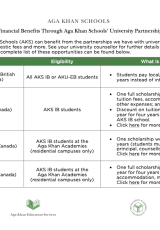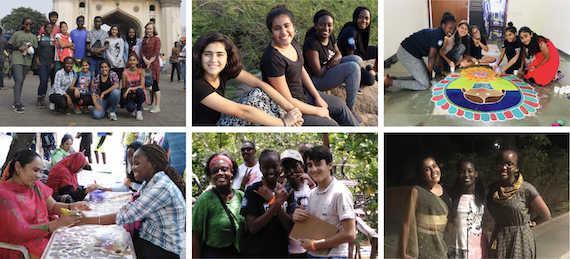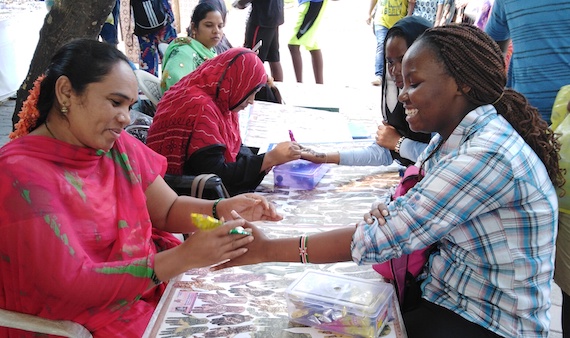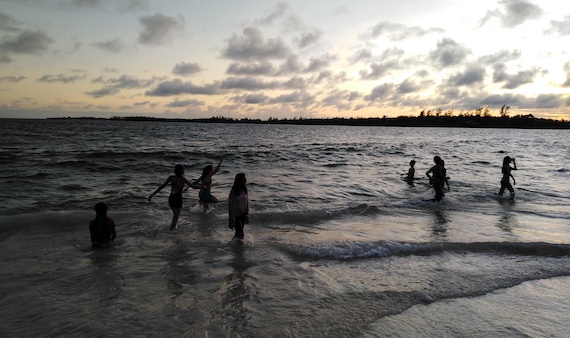Student Exchange: From Vision to Reality
Providing students with the opportunity to study at another Aga Khan Academy has been a feature of His Highness the Aga Khan’s vision for the Academies from their very beginning. The education was designed to “inspire its students to explore horizons beyond their own, develop their mental resilience and discover the bonds of mutuality that cut across differences of culture, ethnicity, religion or background.” – His Highness the Aga Khan, at the stone-laying ceremony of the Aga Khan Academy Maputo (2004). The inaugural student exchange was a significant step towards realising this vision, as students moved between the Academies on exchange for the first time.
Student exchanges take a unique form in the Aga Khan Academies. The network facilitates the participation of large numbers of students who are fully integrated into the host Academy. Furthermore, students move within the developing world. This prepares them for a future shaped by the rapid economic growth of many countries in South Asia and East Africa. Pratibha Thimmaraya, an Individuals and Societies teacher in Hyderabad, described the benefits: “The economic situation in more highly developed countries like the US may not be as applicable during an exchange for our students. India has recently passed through a number of the same processes as many countries in Africa. Students can learn from this recent, more comparable experience and bring these lessons home.” Students will also join a growing network of talented youth in the developing world, a network which will support them as they help build their countries’ futures.
The exchange contributes to students’ leadership abilities in other ways, as it enhances their understanding of their own and other cultures. Pluralism begins with respect for one’s own culture. Nizamuddin Amiri, an Aga Khan Academy Hyderabad student from Afghanistan, described its impact. “The exchange experience will definitely have changed my life over here in India. In Mombasa I saw many cultures clashing, which made me care more about sharing mine. For example, I want to change the mind-set that Afghanistan is just a country of terrorism. I’ve brought this new perspective towards my culture back to Hyderabad.”
The changes that Inara and Nizamuddin brought home occurred both naturally and in a planned manner. Students were fully integrated into academic classes and residences at the host school, but also participated in unique sessions for exchange students, which helped them explore local culture and, in turn, look at their own culture through a new lens. Clare McLaughlin, a second year Academy Fellow, designed key parts of exchange programming in Mombasa. “Some of the strongest learning took place in the streets of the local markets, tracing local products back to historical lessons of the Indian Ocean trade. Exchange students saw coastal Kenyan culture in action through historical, economic, environmental, and social lenses.”
Exchange students’ interactions with local students were central to making this an experience that benefitted others at the school. This year, many of the benefits were felt in the classroom. Pratibha Thimmaraya described how the exchange students in her class contributed to the learning experience for all students. “The exchange students brought new ideas and examples from different African contexts. They brought different perspectives on inequality; for example as we were studying casteism in India, the exchange students would bring in racism. Having learnt about what worked and failed in India, and the conflicts generated by different policies, the whole class really came to see the need to understand local contexts.”
Applications for the second exchange, which will happen in the next academic year, have been launched. The next iteration of the programme is being influenced by feedback from participants and the school community. To deepen the experience for students and maximise their learning, the Academies are increasing its length. Students will spend 13 weeks at the other school, which will also enable them to increase their meaningful interaction with local communities, through service learning and excursions.
The future for the programme is exciting as the next five years will also see Aga Khan Academy Maputo and Aga Khan Academy Dhaka participate in the exchange. The prospect of all grade 9 students having an experience like Inara’s is an exciting one for the schools and for parents. “In Mombasa I became curious about my own cultural identity- Kutchi, not just the traditional clothes or food, but the values and morals that are special to us. I’ve been asking my family a lot more about this. My mother was surprised at first but has now been sending me lots of resources since I came home to India.”
Newsletter readers, click here to continue reading the newsletter.
publications







